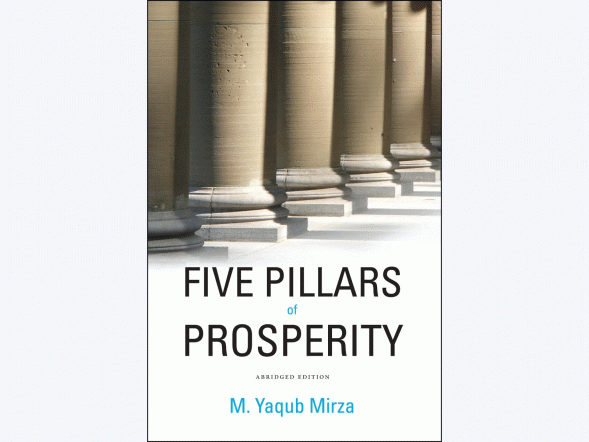
Latest Publications
The Power of Education, by Jeremy Henzell-Thomas
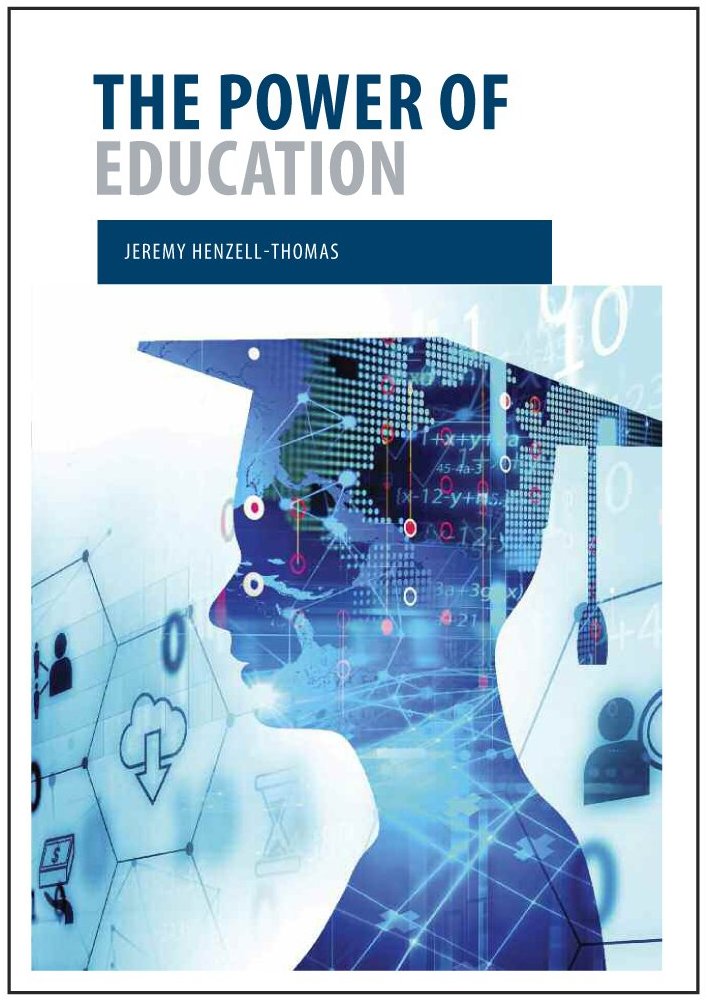
‘Knowledge is Power’ – a statement commonly attributed to an eminent English philosopher and scientist in 1597, still highlights today the importance of knowledge in the modern world. Education forms the basis of our knowledge and its development, from our earliest experiences at school through to Higher Education. Individuals use their knowledge in their professional and personal lives, and society as a collective of individuals shapes the world in which we live. Therefore the power of education is one of the keys to developing a successful society and benefits humanity at large. But things have gone very wrong! Society, values and morals are all in decline. How has education lost its power to build an effective and fair society? How can this decline be reversed? In The Power of Education, the author goes back to first principles and asks: what iseducation, and what do individuals and society need from education? Reconnecting education with the ‘heart and soul’ of humanity, and finding that great purpose of mankind is paramount. This is distinct from a ‘knowledge factory’ that merely develops individuals for material advancement and personal progression. Values, morals, compassion, empathy, gratitude, mutual respect, fairness and social responsibility are all essential traits for individuals that collectively form a successful society, and these traits need to be instilled during the entire educational experience. By rethinking and developing an effective education methodology one can work towards building a better world, based upon equality and fairness for all.
Paperback: ISBN: 978-1-56564-568-4
Rethinking Reform in Higher Education: From Islamization to Integration of Knowledge, by Ziauddin Sardar and Jeremy Henzell-Thomas
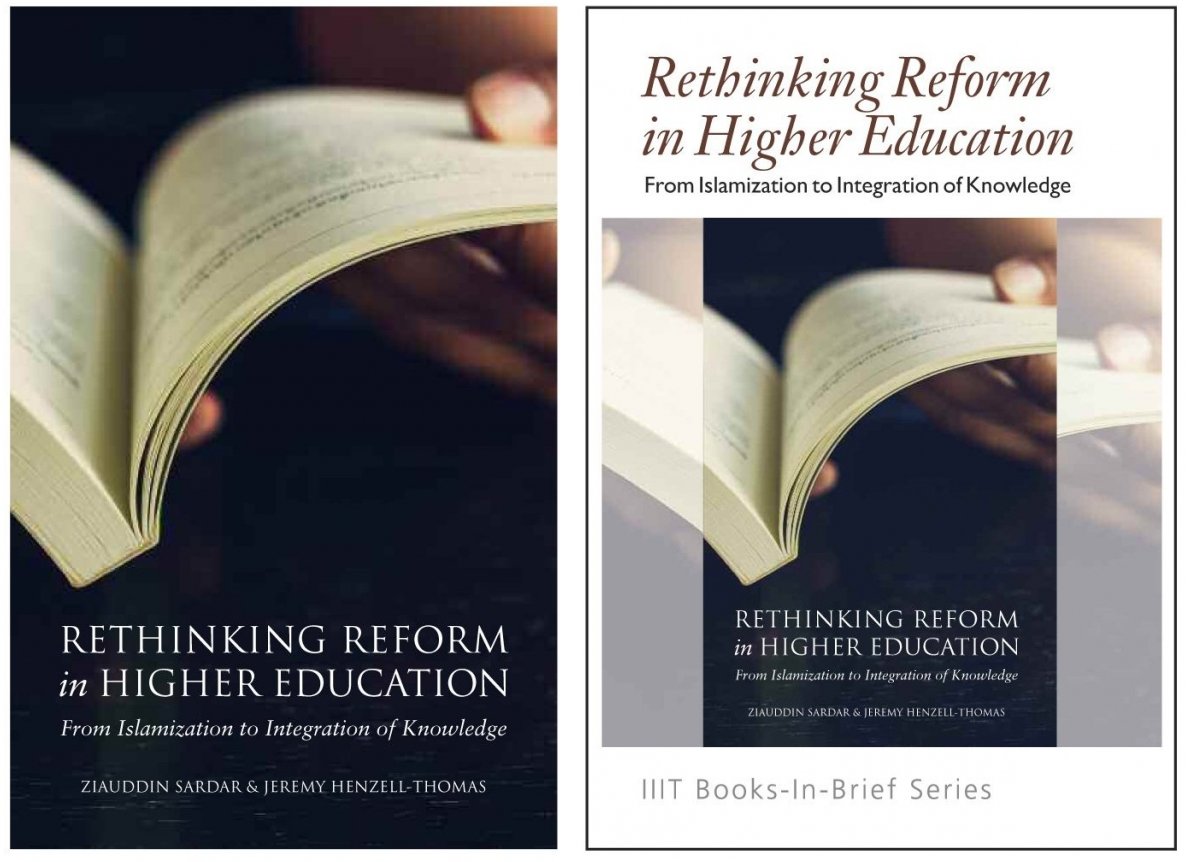
What is wrong with Education today? Why is society in decline? Why does the pursuit of knowledge seem to produce adults who despite their qualifications remain ill-equipped to change the world for the better? What future does humanity face if we cannot find the tools to fix the world we share? One essential tool is the development of education, but are ‘aims and objectives’ simply enough. In order to fix the ethical moral ‘spirit’ of humanity perhaps we first need to rekindle the ‘spirit’ of Education, and ask ourselves “what is Education really about and what does humanity really need?” What knowledge has been ‘lost’ over the centuries? The Reform of Higher Education in Muslim Societies proposes a paradigm shift in critical thinking aimed at the issues facing education and it’s bearing on society and humanity at large. Building upon existing disciplines, improving upon them, and innovating new ones could be seen as a way forward. By recognizing the ethical and spiritual norms of Muslim society, and their guiding principles and spiritual identity, together with the plurality and diversity of the modern networked world, this work seeks to replace the sterile and uniform approaches to knowledge with a broader and more creative understanding of a global shared reality. Moderation, balance, effective communication, and mutual respect are paramount features of the underlying philosophy, essential for developing a more effective Education paradigm – one that will help humanity face present and future challenges.
Paperback: ISBN: 978-1-56564-977-4
Hardback: ISBN: 978-1-56564-982-8
Book-in-Brief: ISBN: 978-1-56564-954-5
Teaching Holistically: A Moral, Spiritual, and Holistic Approach to Educational Development, by Ann El-Moslimany
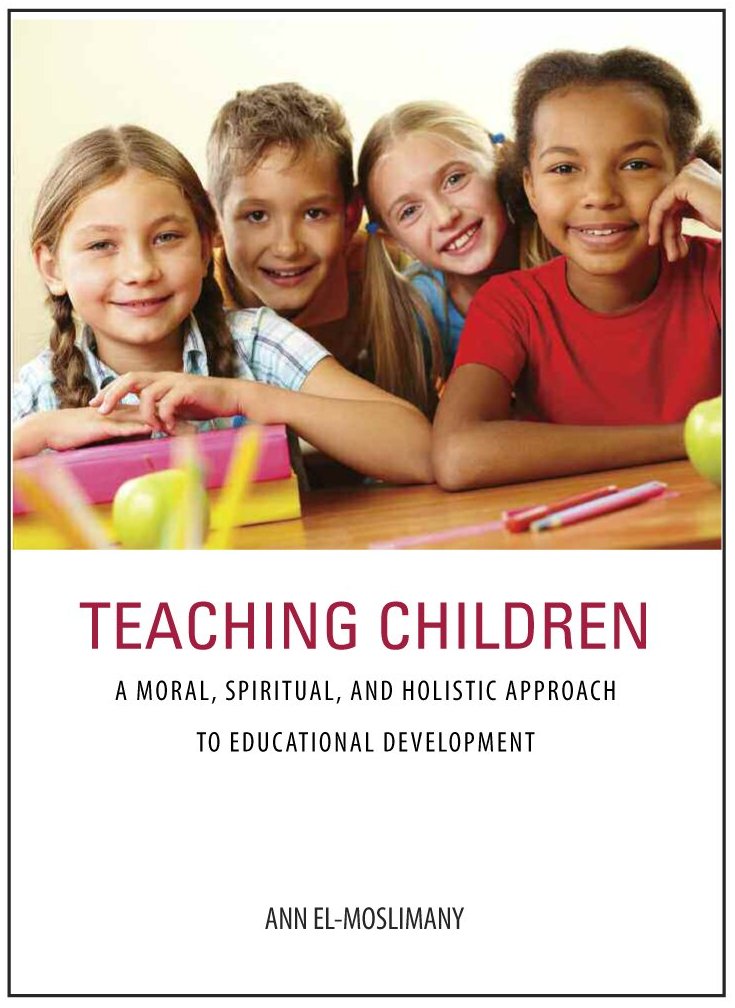
The current education system dates back a hundred years or more, and is in desperate need of a ‘reboot’. In developing the industrialised society, the education system itself became like a factory, the end product being pupils who can merely regurgitate facts, and themselves ending up as cogs in the machine that is the wider industrial complex. The legacy of this is a soulless ‘functional’ educational system that fails to develop pupils to meet the present and future needs of individuals and their expectations. This failure inevitably impacts on society and humanity at large. Society has long since moved beyond the industrial revolution and into an age of global connectedness where the sum of human knowledge is freely available via the internet. People of this age are generally more well informed and on a variety of issues. An effective holistic educational philosophy is required, one that gives full spiritual meaning to all that a child learns. It should equip children with spiritual awareness, morals and values, social responsibility and accountability, self-discipline and self-determination, self-confidence and empowerment, ambition and aspiration tempered with thoughtfulness and gratitude.
Paperback: ISBN: 978-1-56564-989-7
Five Pillars of Prosperity (Abridged Edition), M. Yaqub Mirza
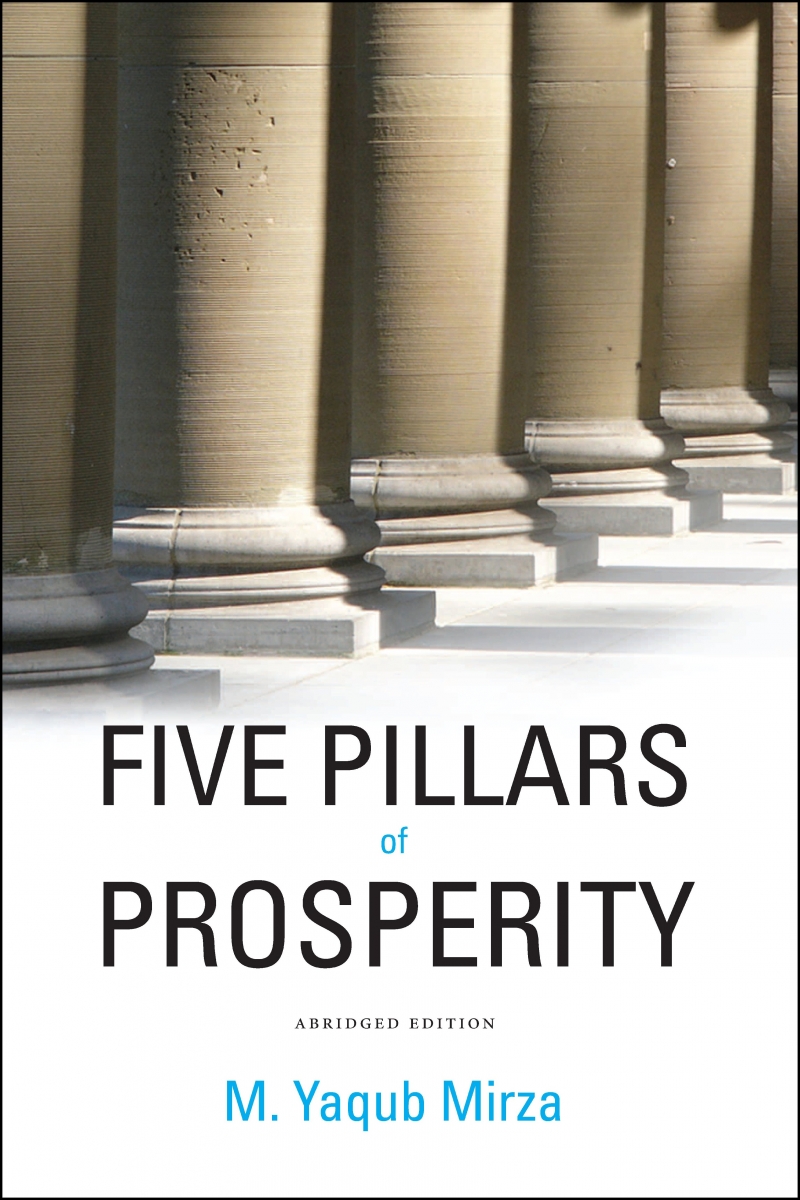
Five Pillars of Prosperity by Dr. M. Yaqub Mirza provides readers with a balanced and sensible approach to financial planning and security. The author presents a powerful and provocative case for arranging one’s life – and the material pursuits – in ways that not only benefit the reader but also society at large. He shows how the attainment of wealth and prosperity can be achieved by following five key activities: Earning, Saving, Investing, Spending, and Giving.
“FIVE PILLARS OF PROSPERITY PROVIDES GREAT ADVICE ON THE VALE OF SOLID, BASIC PRINCIPLES THAT CAN AND SHOULD GUIDE US IN LIFE, IN OUR FAMILY, OR IN OUR BUSINESS. IT IS GOOD ADVICE WHETHER YOU ARE CHRISTIAN, MUSLIM, OR JEWISH. YAQUB MIRZA HAS PUT A LOT OF WISDOM BETWEEN THE COVERS OF THIS BOOK.” John H. Sununu, former Governor of New Hampshire and White House Chief of Staff under President George H. W. Bush
Paperback: ISBN: 978-1-56564-562-2
Selected Essays, by Isma'il al Faruqi
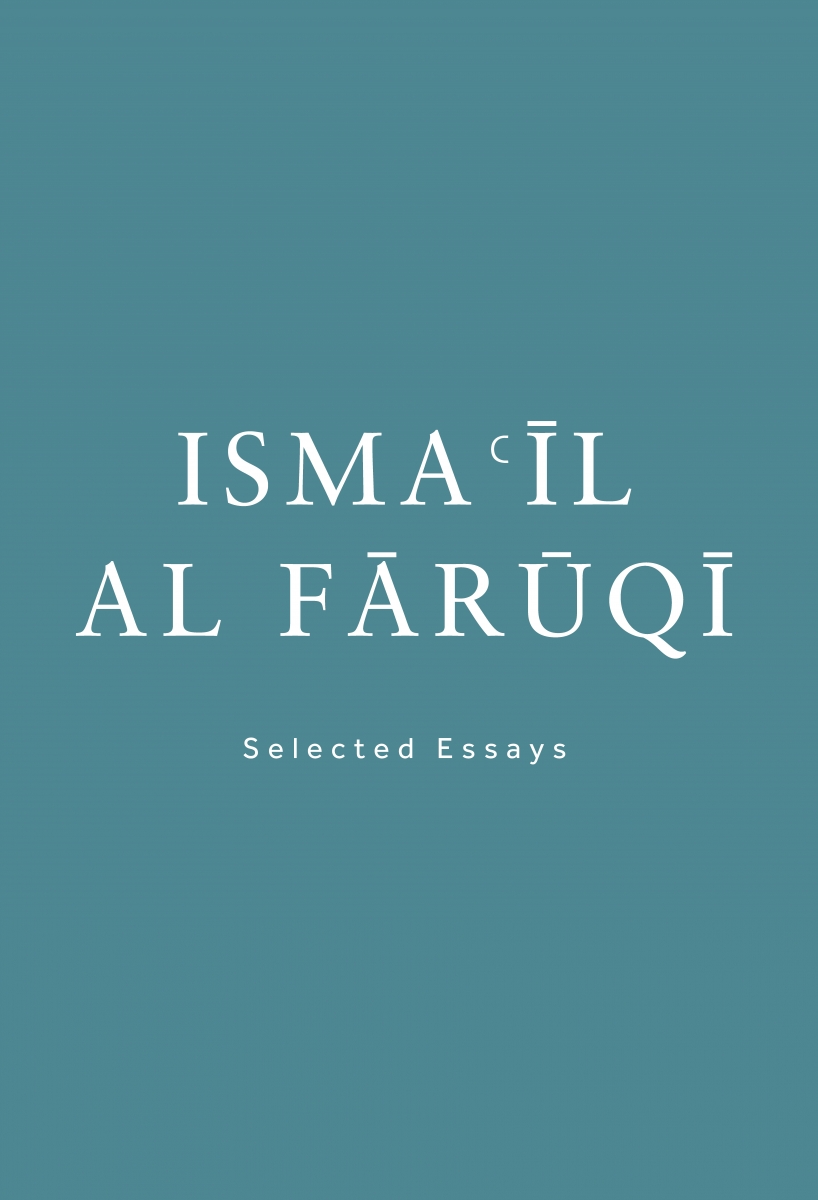
In this set of three powerful essays, the late world renowned scholar and philosopher, Ismail al Faruqi, displays his formidable insight, vast knowledge, and unique trademark logic, brought to bear on subjects still considered to be at the forefront of discourse on comparative religion.
Al Faruqi delves deep into the heart of the debate on the metaphysical nature of values in the Western and Muslim traditions, of the history of religions, and other issues, ultimately to guide readers to a clarity of understanding and Islam's position in relation to them.
This will interest and stimulate many readers - enlightenment thinkers, modern secularists, philosophers and theologians, Muslim or otherwise - as al Faruqi strives to arrive at an accurate assessment of the fundamentals of these important subjects, and their significance for the human condition.
Paperback: ISBN: 978-1-56564-598-1
Reviving the Balance: The Authority of the Qur'an and Status of the Sunnah, by Taha Jabir Alalwani
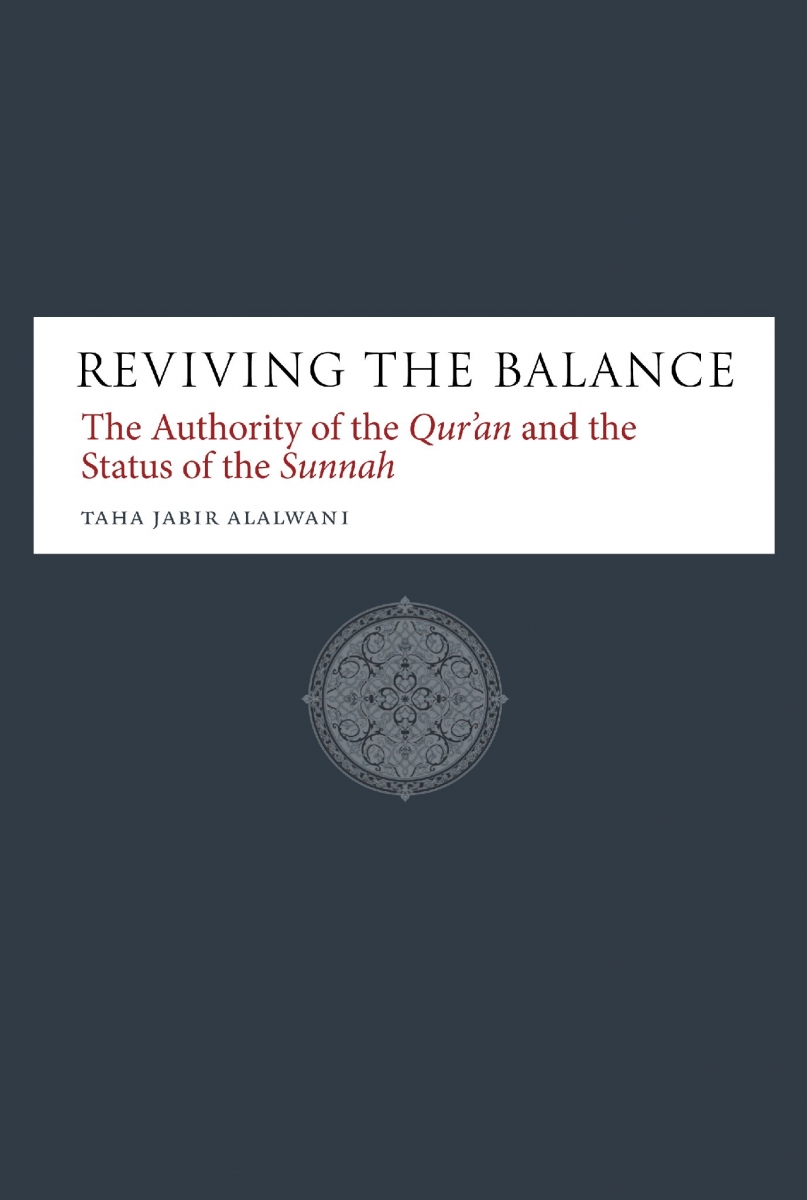
The relationship between the Qur’an and the Sunnah remains a most interesting and researched field of study, especially when considered from historical, theological and spiritual perspectives. In Reviving the Balance the author carefully examines the development of the oral and written traditions that constitute the Sunnah. This development historically led to monumental work undertaken by past scholars to verify the authenticity of reports, and the character and reliability of narrators involved, in recording the Prophet’s life, words, and actions. Eventually this became an overwhelming maze of information. Navigating the maze required interpretation, contextualization and categorization of the information. The author makes the case that despite the praiseworthy intention and effort to emulate the Prophet, once the Sunnah had been collected the Muslim community began to neglect the Qur’an in favour of these narrations. This preference of the Sunnah over the Qur’an became ‘acceptable’ under the pretext that such narratives ‘contained’ the Qur’an. Furthermore, these narratives were then abandoned in favour of Islamic jurisprudence under the pretext that such juristic texts tacitly included both the Qur’an and the Sunnah. This work aims to restore the relationship between the two, so that the Prophetic Sunnah is inextricably and harmoniously linked to the Qur’an, thus avoiding contradiction and conflict between the two.
Paperback: ISBN: 978-1-56564-690-1
A Brief Introduction to Qur'anic Exergesis, by Ali Suleiman Ali
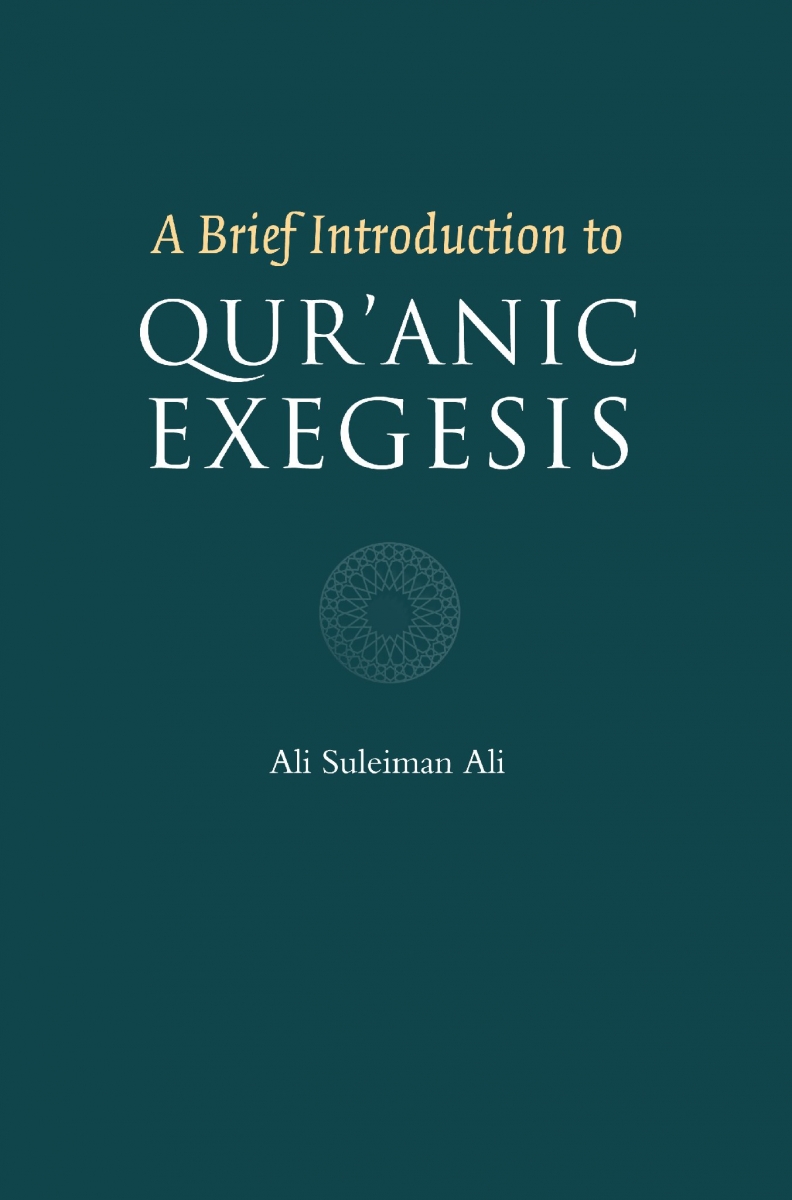
Generating precise comprehension of the Qur'an and the true meaning of its verses is arguably the essence of the most important of the Islamic sciences, Qur’anic exegesis or tafsir. Since the passing of the Prophet many scholars have worked hard to bring a proper understanding of the meaning of the Qur’an to Muslims, and indeed to the world at large, as fully as possible, in an attempt to widen knowledge of the guidance contained therein, and how to live life in accordance with its principles. The result has been a wealth of historical Muslim literature on the subject which has come to be known as Ulum al-Tafsir or the sciences of tafsir, a systematic exegesis of the Qur’an following several methodologies. This work traces the evolution of Qur’anic exegesis, from the time of the Prophet, the Companions, the Successors, the early mufassirun (exegetes) with independent tafsir works, to the present day. In doing so, it addresses some major issues including to what extent has tafsir been influenced by differing theological traditions (classical, mystical sufi, persian), political and sectarian interests etc. and how interpretation has differed in some cases, mainly pertaining to juridical, theological, historical, and linguistic issues. Certain scholars and Qur’anic commentaries have stood the test of time and stand in greater prominence to others. Their works are introduced, and different methodologies compared and critiqued. What we are left with is a broad yet important overview of a subject which otherwise can be too complex and extensive for the ordinary reader to grasp acting as a valuable addition to his/her understanding and study of the Qur’anic text.
Paperback: ISBN: 978-1-56564-688-9
Hardback: ISBN: 978-1-56564-699-5
Qur'anic Terminology: A Linguistic and Semantic Analysis, by Balil Abd Al-Karim
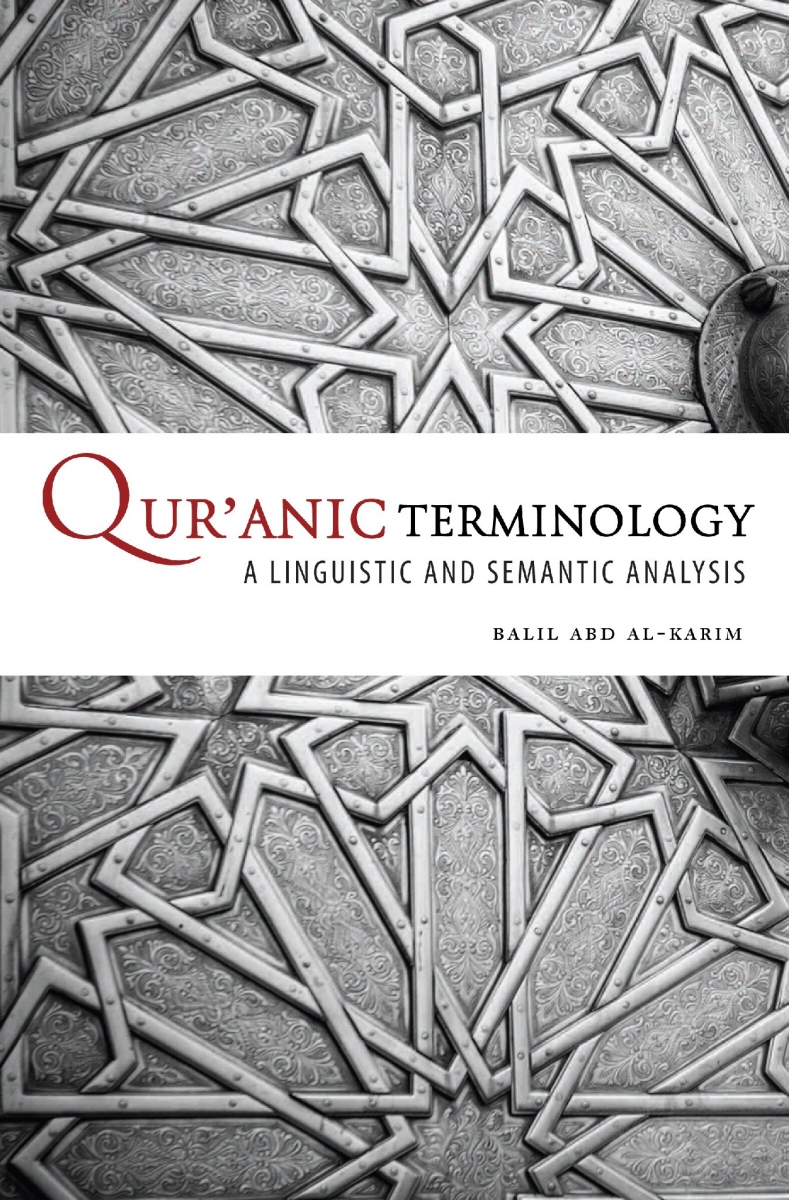
It is impossible to fully comprehend the Qur’an, or even to accurately interpret the meaning of its verses, without having first studied the terminology and concepts therein as well as other aspects including the history of revelation. Taken together these provide the key to unlocking the universal truths of the Faith. This approach allows the text of the Qur’an to be brought to life with precision and flexibility, but also to enrich the communication of the Qur’anic message through its beautiful and comprehensive nature. This study provides a broad glossary of key Qur’anic terms and their meanings, both semantically and linguistically, within the context of the Qur’an. In a well organised and easy to understand format, the lay reader is carefully and logically guided through the various contextualized nuances of usage and meaning. This essential work maps and explores aspects of the Divine communication, providing a greater appreciation of the depth of the Qur’an, and what makes it a linguistic and literary miracle.
Paperback: ISBN: 978-1-56564-698-8
Hardback: ISBN: 978-1-56564-651-3
The Theory of Islamic Art: Aesthetic Concept and Epistemic Structure, by Igham Mohammed Hanash
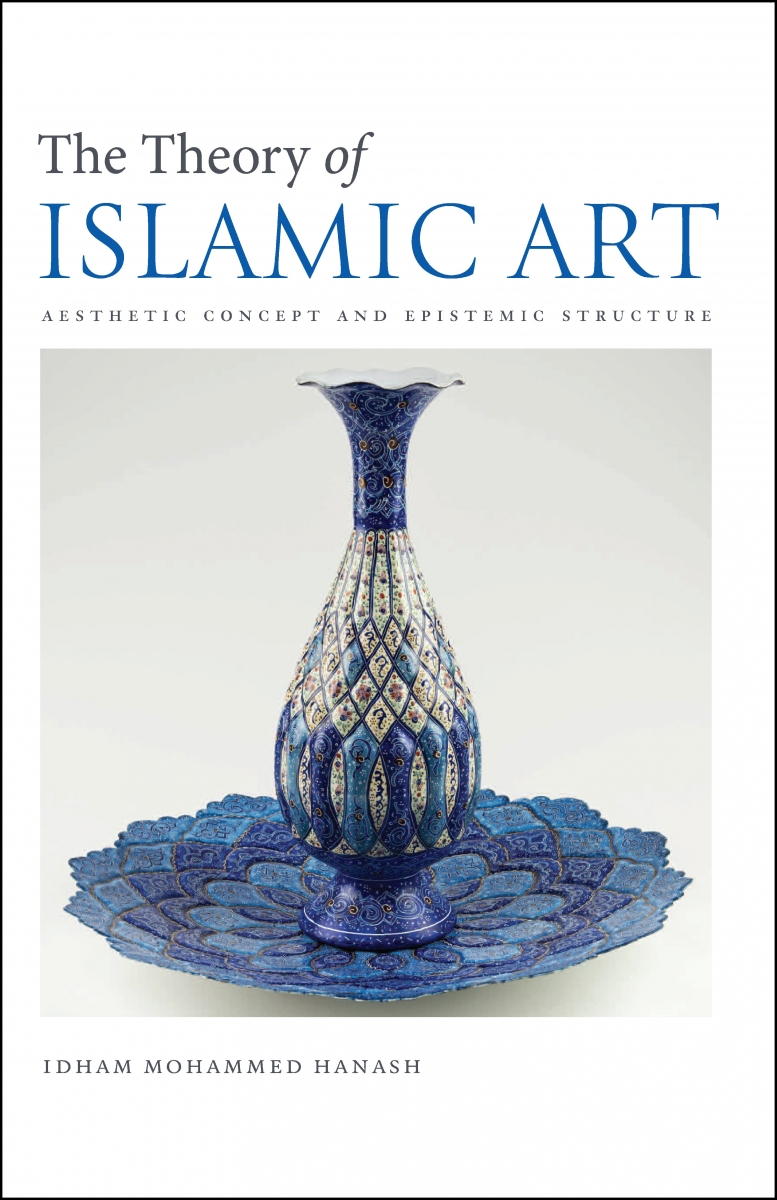
What is beauty and what is art? What drives Mankind’s need to be creative and to be surrounded by beautiful objects and works of art? Mankind’s love and worship of the Divine, across varied cultures, has manifested itself in the creativity and artistry seen in beautiful buildings and objects that glorify the Creator, adding that almost esoteric or ‘spiritual’ dimension to the material world. The legacy of Muslim cultures from many parts of the world has provided, and continues to provide, outstanding examples of artistic expression influenced by and/or glorifying the oneness of God. What emotions are Muslim artists intending to instil in the observer and what are the messages being conveyed, is a little glimpse of paradise being attempted?
In treating Islamic art as a subject that lends itself to archaeological study, the author takes the reader on a journey of exploration and discovery into its origins and evolution from a historical perspective. Building upon this, the journey continues into analyzing both the material and theoretical concepts of Islamic art. The ‘material’ concept based upon beautiful rarities and relics that have grown out of Muslim cultural and artistic creativity; the ‘theoretical’ concept associated with the intellectual and cultural foundation for a critical philosophical science of Islamic artistic beauty. Included in this work is an exploration of misconceptions by many orientalists in their premises and approach to Islamic art, which in some part completely overlooked the ‘spiritual’ perspective of Muslim artists in their creation of beautiful works of art.
Paperback: ISBN: 978-1-56564-696-4
Ijtihad and Renewal, by Said Shabbar
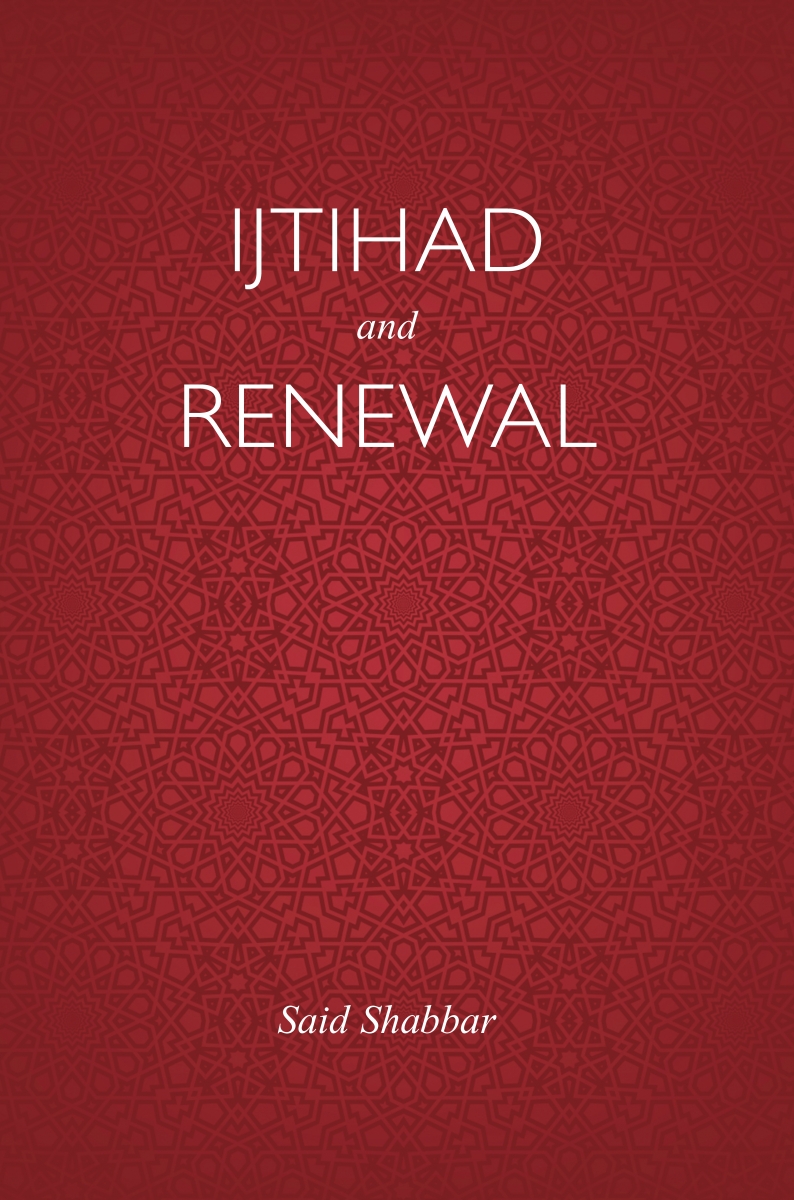
During the early centuries of Islam, the various issues and challenges that faced the rapidly expanding Muslim community of the time were tackled using intelligence and independent reasoning. These were derived from the Qur’an and Sunnah – a practice known as ijtihad. As the centuries wore on the gates of ijtihad were generally closed in favour of following existing rulings, by way of analogy, developed by scholars. And as reason and intellect, now held captive to schools of thought (madhahib) and earlier scholarly opinion, stagnated, so did Muslim societies. Ijtihad and Renewal is an enlightening and uplifting analysis of ijtihad and the contribution that it can make to a positive Muslim revival in the modern world. The author makes the case that simply taking solutions rooted in the past and applying them to the complex and unique realities of our own age, has paralysed the creativity and effectiveness of Islamic thought. In order to restore a sense of purpose and direction, and to revive Muslim societies from centuries of decline and slumber, we first need to revive the essential practice of ijtihad. Focusing attention on contemporary context-based critical and creative thinking, effective and powerful solutions can be developed for our times. These solutions are to be based upon the Qur’an and Sunnah, but also distilling the wisdom and experience of the past for the present – the rich intellectual and spiritual legacy brought bang up-to-date to face the challenges of a global shared contemporary reality.
Paperback: ISBN: 978-1-56564-975-0
Hardback: ISBN: 978-1-56564-976-7
